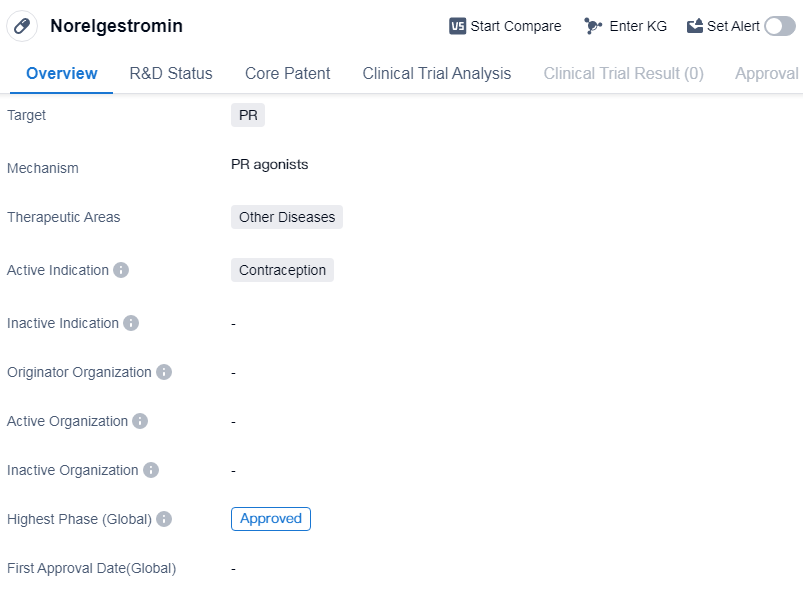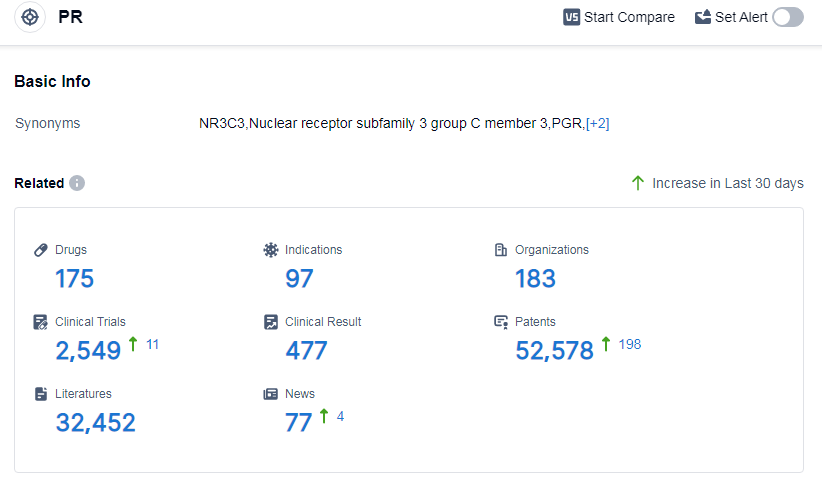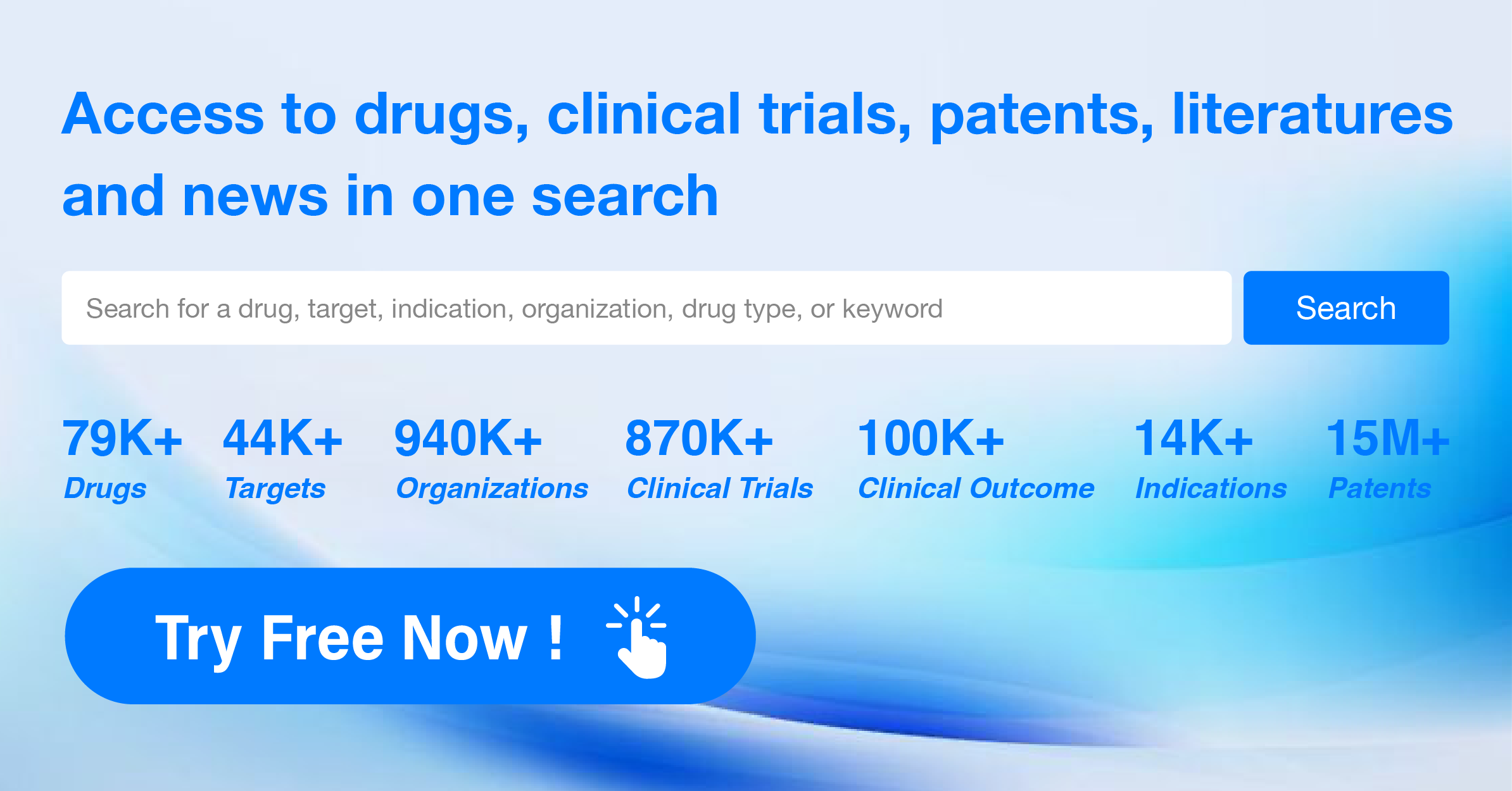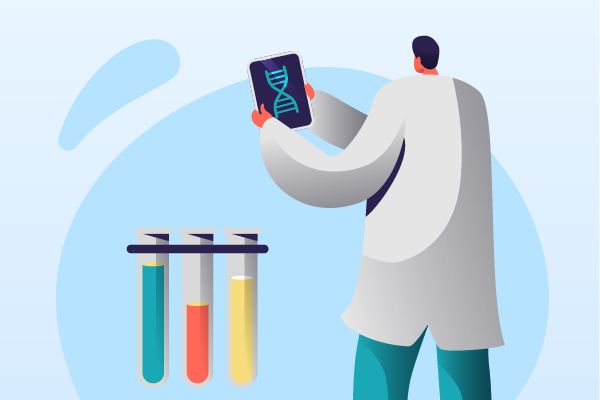Pharmaceutical Insights: Norelgestromin's R&D Progress and its Mechanism of Action on Drug Target
Norelgestromin's R&D Progress
Norelgestromin is a small molecule drug that primarily targets the progesterone receptor (PR). It falls under the therapeutic area of other diseases and is specifically indicated for contraception. The drug has reached the highest phase of development, which is the approved stage on a global scale.
Norelgestromin is a synthetic progestin, a type of hormone that mimics the effects of progesterone in the body. By targeting the progesterone receptor, it exerts its contraceptive effects by inhibiting ovulation, thickening the cervical mucus to prevent sperm penetration, and altering the endometrium to make it less receptive to implantation.
As a small molecule drug, Norelgestromin is typically administered orally in the form of tablets or patches. This allows for convenient and non-invasive delivery to the patient. The drug's approval indicates that it has successfully undergone rigorous testing and evaluation, demonstrating its safety and efficacy for contraception.
The therapeutic area of other diseases suggests that Norelgestromin may have additional applications beyond contraception. However, the specific indications within this category are not provided, leaving room for further exploration and research.
The approval of Norelgestromin signifies that it has met the necessary regulatory requirements and has been deemed suitable for use in the global market. This achievement is a significant milestone in the drug's development journey, as it demonstrates its potential to provide a safe and effective contraceptive option for individuals seeking reliable birth control methods.
👇Please click on the image below to directly access the latest data (R&D Status | Core Patent | Clinical Trial | Approval status in Global countries) of this drug.
Mechanism of Action for Norelgestromin: PR agonists
PR agonists are a type of medication or compound that activate the progesterone receptor (PR) in the body. The progesterone receptor is a protein that is found in various tissues and cells throughout the body, including the reproductive system, brain, and immune system. When activated by PR agonists, the progesterone receptor initiates a cascade of cellular events that can have various effects depending on the specific tissue or cell type.
In the context of biomedicine, PR agonists are often used in hormone replacement therapy (HRT) for women who have low levels of progesterone. These agonists mimic the action of progesterone and can help regulate the menstrual cycle, support pregnancy, and alleviate symptoms associated with hormonal imbalances. They may also be used in the treatment of certain gynecological conditions, such as endometriosis or uterine fibroids.
Additionally, PR agonists have been studied for their potential therapeutic applications in other areas of medicine. For example, they have shown promise in the treatment of certain types of breast cancer, as the activation of the progesterone receptor can inhibit the growth of cancer cells. PR agonists may also have neuroprotective effects and could be explored as a treatment for neurodegenerative diseases.
Overall, PR agonists are compounds that activate the progesterone receptor and can have various effects on different tissues and cells in the body. Their use in biomedicine ranges from hormone replacement therapy to potential treatments for cancer and neurodegenerative diseases.
Drug Target R&D Trends for Norelgestromin
According to Patsnap Synapse, as of 14 Sep 2023, there are a total of 175 PR drugs worldwide, from 183 organizations, covering 97 indications, and conducting 2549 clinical trials.
Based on the analysis of the provided data, Bayer AG is the company growing the fastest under the target PR, with a strong track record of approved drugs. The most common indication for approved drugs is contraception, followed by pregnancy, osteoporosis, postmenopausal, menstruation disturbances, and menopausal syndrome. Small molecule drugs dominate the drug types progressing under the target PR, with a significant number of approved and inactive drugs. The United States, China, and the European Union are the leading countries in drug development, with China showing significant progress. Overall, the target PR presents a competitive landscape with opportunities for growth and development in the pharmaceutical industry.
👇Please click on the picture link below for free registration or log in directly if you have a freemium account, you can browse the latest research progress on drugs, indications, organizations, clinical trials, clinical results, and drug patents related to this target
Conclusion
In summary, Norelgestromin is a small molecule drug that targets the progesterone receptor and is indicated for contraception. It has reached the highest phase of development globally. As a synthetic progestin, it exerts its contraceptive effects by inhibiting ovulation, thickening cervical mucus, and altering the endometrium. The drug's approval highlights its safety and efficacy, making it a valuable option for individuals seeking contraception. Further research may explore its potential applications in other diseases within the therapeutic area.






